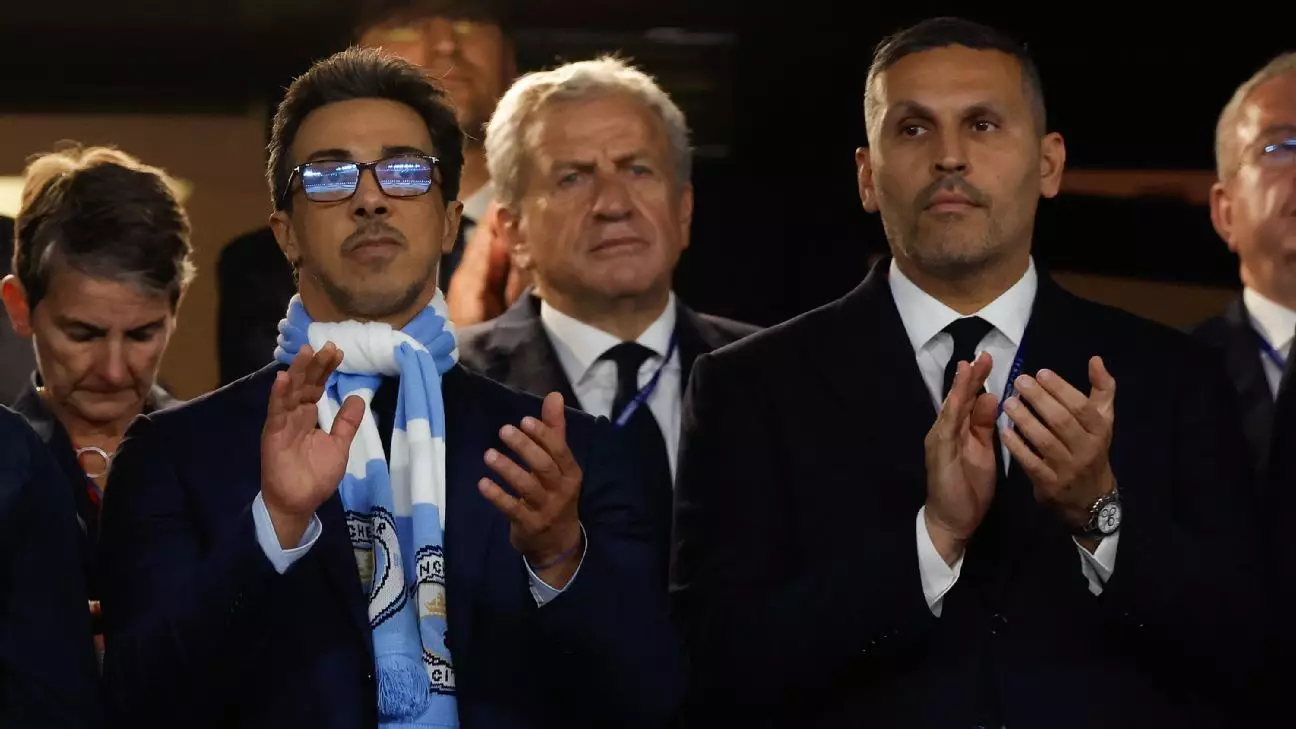In the world of football, few events hold as much significance as a club facing serious allegations that could potentially alter its history and future. The beginning of Manchester City’s legal battle regarding 115 charges of financial misconduct marks a pivotal moment not just for the club, but for the entire Premier League. With a hearing that started on September 16, the stakes have never been higher, and the implications could reverberate throughout the sport. The questions hanging in the air are not just about guilt or innocence; they touch upon the integrity of a league that has seen its prestige rise dramatically, particularly since City’s acquisition by Sheikh Mansour in 2008.
The issue at hand is both profound and complex. If found guilty, the repercussions for City could be severe. The potential for exorbitant financial penalties, significant points deductions, or even expulsion from the Premier League looms large. These charges challenge the very foundation of Manchester City’s remarkable success, which includes an unprecedented 21 major trophies since the takeover, standing in stark contrast to the mere nine honors the club secured in its first 128 years.
What makes this situation particularly compelling is how intertwined it is with the reputations of various stakeholders. Manchester City’s accomplishments have crafted a narrative of a footballing dynasty, one fostered by investment and strategic management. The notion that such a narrative could be forever tainted by administrative failings is a bitter pill to swallow for fans and executives alike. With the famed Pep Guardiola at the helm, the club fortified its position as one of football’s titans, but now faces an existential threat that could redefine its legacy.
Guardiola has expressed his anticipation for a resolution, suggesting that the independent panel’s decision will finally bring clarity to a situation that has dragged on for years. His defense of City’s integrity plays a crucial role in the broader public relations battle the club faces. “Justice is there in a modern democracy,” Guardiola stated, emphasizing the presumption of innocence until proven guilty. However, how the public and the media perceive the situation remains as volatile as ever.
The breadth of the accusations against Manchester City is staggering. The allegations are rooted in information gleaned from the Football Leaks documents, which purportedly reveal that City officials attempted to misrepresent the club’s financial health. While the club has consistently denounced these leaks as false, the ramifications are significant. In 2020, UEFA initially imposed a two-year Champions League ban upon City, which was subsequently overturned by the Court of Arbitration for Sport due to timing issues related to the allegations.
The Premier League operates under different guidelines, which allows for a more extensive inquiry without the limitations that UEFA encountered. The charges extend to multiple allegations of failing to provide accurate financial information, as well as not cooperating with investigations. Such serious charges could fundamentally alter the perception of City not only in terms of governance but also in how the league enforces its regulations.
While the focus is largely on Manchester City, the ramifications for the Premier League are immense. Its chief executive, Richard Masters, publicly acknowledged the necessity of resolving the ongoing saga, citing the importance of maintaining confidence in the league’s rule enforcement. This case could serve as a precedent, affecting how future allegations of misconduct are approached. Football’s never-ending battle between financial ambition and regulatory oversight is playing out in real-time, and the outcome could determine the fate of a generation of players, clubs, and even managerial careers.
The private hearings are expected to last for a minimum of ten weeks, suggesting that the end is not in sight for the lengthy process of hearings and legal arguments. What’s more, each party has the option to appeal the panel’s decisions, although the absence of an appeal route to CAS adds a layer of complexity. Both Manchester City and the Premier League may keep their findings and internal discussions closely guarded for the foreseeable future, reducing the likelihood of public clarity until the process has run its course.
Ultimately, the outcome of this high-stakes legal battle might bring either a catastrophic judgment for Manchester City or a reaffirmation of its standing within English football. The potential results range from crippling financial penalties to further bolstering City’s image, depending on whether the club can navigate the treacherous waters of this serious inquiry.
With each passing week, the speculation about what lies ahead for City grows, making it critical for fans, players, and the wider football community to remain engaged. As this legal drama unfolds, it is essential to consider not just what is at stake for Manchester City, but what it means for the fabric of the Premier League itself. The ball is officially in play, and there is no turning back. Everything hangs in the balance, set against the backdrop of modern football’s fierce competitive landscape.

